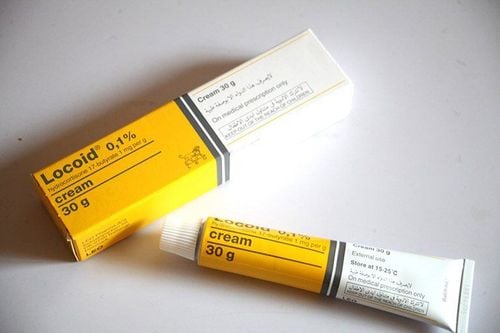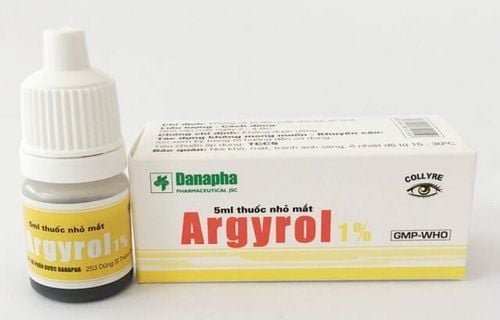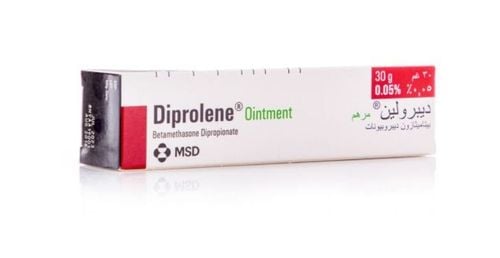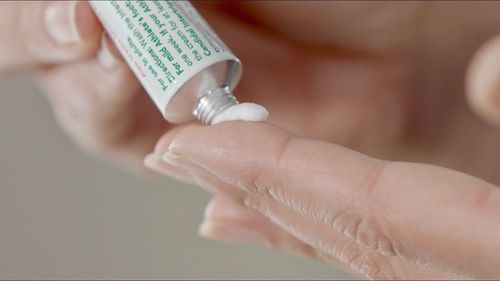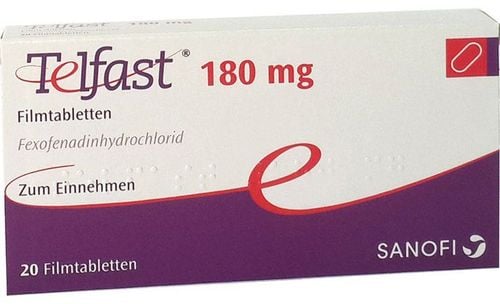This is an automatically translated article.
The article was professionally consulted by Dr. Nguyen Van Dinh - Head of Respiratory - Asthma - Allergy - Clinical Immunology Unit, Vinmec Times City International Hospital.Allergies occur when a child's body overreacts when exposed to a "foreign" allergen through the immune system. The disease is more common in children who have a family member with allergies. Not only affecting normal activities as well as sleep of children, some allergic conditions can be life-threatening if not properly recognized and detected early.
1. What are common allergies in children?
1.1 Atopic dermatitis (Atopic eczema) Atopic dermatitis is the most common skin disease in children. The disease appears as tiny blisters concentrated on red skin on the face, arms or scattered all over the body. The blisters often cause itching and burning, when broken, the fluid is also the entryway for bacteria that cause bacterial infections in children. The disease is easily misdiagnosed with other skin diseases, so it is necessary to see the right specialist soon. Treatment relies on proper skin hydration and topical anti-inflammatory medications. The disease may recur after many years or disappear completely.
1.2 Asthma Asthma is a chronic inflammation of the airways of a child and an overreaction to external agents. Children should be examined to rule out asthma if they have more than one of the following symptoms: heaviness in the chest, cough, wheezing, and difficulty breathing repeatedly. Common causes of asthma attack or worsening include: Physical activity, dust, pollen and other respiratory allergens, other foods, medications, respiratory infections, allergic rhinitis .
Asthma is more and more common in children, children have shortness of breath, which limits children's activities such as learning and entertainment, insomnia, even seriously affecting health if not controlled. good. The diagnosis of bronchial asthma in children requires taking the child's and family history, physical examination, assessment of airway function, and finding allergens that trigger asthma in children.
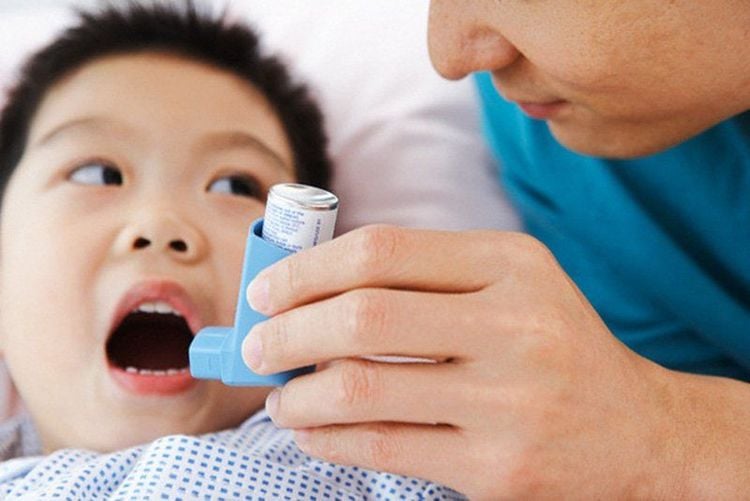
1.3 Allergic Rhinitis and Allergic Conjunctivitis Allergic Rhinitis is a very common allergic disease in children, although symptoms are not severe but often persistent, causing discomfort to children. Symptoms include: sneezing, itchy nose, runny nose, and stuffy nose that often causes children to scratch their noses, breathe through their mouths, and sleep restlessly. Meanwhile, children with allergic conjunctivitis will have itchy eyes, or see children rubbing their eyes, tearing up. Symptoms of allergic rhinitis or allergic conjunctivitis often recur according to the season of the year or year round. In addition to finding the allergen that triggers the disease, the doctor prescribes oral medications or nasal sprays (or eye drops) depending on the condition of each child.
1.4 Food allergies Food allergies can be breastfed (milk allergy) or have late onset in older children and can be found in any food but are more common in certain foods. Eaten from: peanuts, nuts, fish, shrimp, eggs, soybeans, milk and wheat. Symptoms appear after a child eats from a few minutes to a few hours, including: burning itching, swelling of the tongue or mouth, erythema may be scattered all over the body with itching; nausea, vomiting, abdominal pain, loose stools; In severe cases, there can be difficulty breathing, low blood pressure and loss of consciousness, life-threatening.
There can be cross-allergies between foods, some foods only cause allergies when raw or cooked, so you need to take your child to see an Allergist for advice on changing healthy diet for your child.
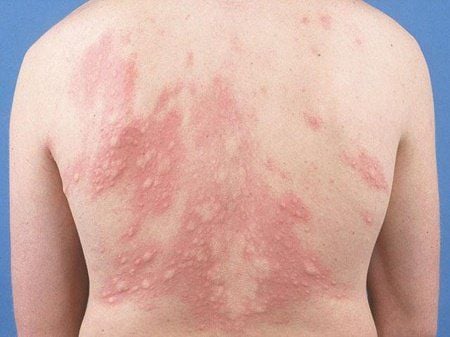
1.5 Acute and chronic urticaria Urticaria is an pruritic erythematous rash that appears scattered on the skin due to allergic causes, these rashes are short-lived (acute urticaria) or recur for more than 6 weeks (acute urticaria) you are jealous). Urticaria occurs alone after the body is exposed to a foreign allergen or occurs in the context of the above-mentioned allergic diseases. Children should be examined and tested for allergens or blood tests to look for allergens or other causes of persistent hives. Urticaria may resolve on its own, but in severe or recurrent cases, oral or injectable medications (antihistamines, anti-inflammatory drugs, biologics) should be considered.
Trắc nghiệm: Sự phát triển tinh thần, vận động của bé thế nào là đúng chuẩn?
Khi nào bé biết nói, biết hóng chuyện hay biết cầm cốc là "đúng chuẩn"? Điểm xem bạn biết được bao nhiêu mốc phát triển tinh thần, vận động "đúng chuẩn" của bé nhé!The following content is prepared under supervision of Thạc sĩ, Bác sĩ y khoa, Ma Văn Thấm , Nhi , Phòng khám Đa khoa Quốc tế Vinmec Dương Đông(Phú Quốc)
2. Where should the mother take the child for medical examination and monitoring?
When the child has signs of an allergy such as: Urticaria on the skin with severe itching. Cough, wheezing, difficulty breathing, chest tightness; Sneezing, runny nose, itchy nose repeatedly; Watery, itchy eyes seasonally or year-round; Red itchy rash, abdominal pain, loose stools, shortness of breath after eating a few minutes to a few hours. If the child has symptoms of swelling of the lips, eyes or abdomen, difficulty breathing, the child should be taken to the hospital immediately.Children need to be examined by an allergist at a facility with adequate equipment (allergen skin test, respiratory function measurement, allergen stimulus test, specific desensitization) for diagnosis. , treatment and monitoring of the disease.
3. When taking your child to see an Allergist, what will you and your child do?
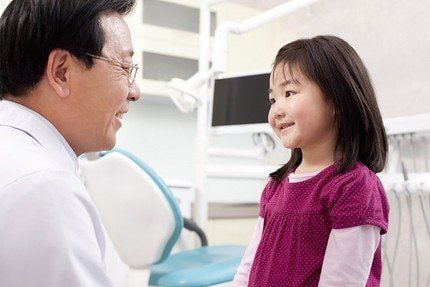
Your doctor will ask you and your child about your child's and family's medical history to identify suspected factors related to your child's condition. Children are given tests to support diagnosis such as: Test of suspected allergens on skin or blood test, measurement of respiratory function, eye examination, ear, nose and throat examination. You will be explained by the doctors about the condition such as: causes and treatment directions, monitoring the child's disease. On a case-by-case basis, an Allergist will recommend the most appropriate treatment for your child. During regular follow-up visits, the doctor examines and re-checks the patient's condition, assesses respiratory function (bronchial asthma) in order to promptly adjust medication to achieve treatment goals. You will also be advised on how to manage the illness at home, and what precautions to take to prevent your child from being exposed to the triggering allergen (especially important if your child has a history of severe allergies). Your doctor will advise on how to care for your child when he has allergies such as which milk is safe to change to when he has a milk allergy or how to care for his skin when he has atopic dermatitis. If an allergy is diagnosed, your child will be issued an allergy confirmation card, which will be useful for future visits to other specialties or medical facilities.
4. How to treat allergies?
After finding the cause of the onset of the disease, preventing the recurrence of the disease is based on the ability to prevent the child from being re-exposed to these allergens (drugs, food, pollen, ..)Depending on the child's condition Your doctor will prescribe antihistamines and/or anti-inflammatory drugs, orally or topically (nose spray, throat spray, topical) to improve your child's symptoms. In case of severe illness (anaphylaxis, angioedema, other complications of the disease) the child needs to be hospitalized for continuous monitoring and intravenous drugs.
The child's mother and family play a very important role in the monitoring and treatment of the child's illness. In order to prevent the disease from reappearing, which requires mothers to closely monitor their children, mothers should keep a log of the frequency and severity of symptoms as well as suspected triggering factors to facilitate treatment. the treatment of children, especially in children with bronchial asthma.
Children in the developmental stage are very susceptible to respiratory problems, respiratory infections and gastrointestinal infections, skin diseases... Parents need to pay special attention to their care. and provide adequate nutrition for children. The pediatric department at Vinmec International General Hospital is the address for receiving and examining diseases that infants and young children are susceptible to: viral fever, bacterial fever, otitis media, pneumonia in children. , allergic rhinitis... With modern equipment, sterile space, minimizing the impact as well as the risk of disease spread. Along with that, Vinmec has a general examination in conjunction with a nutritionist to develop separate menus for the baby (if needed), Dermatologists help diagnose the cause of allergies, thereby providing the best possible solutions. effective treatment plan.
In particular, Vinmec International General Hospital currently has a package of examination and advice on treatment of atopic dermatitis for all customers of all ages. Customers at risk such as allergies, affected by ambient conditions such as weather, climate, humidity, ... will be examined and tested including:
Specialist examination Dermatology Perform tests such as: quantitative IgE, fresh mycobacteria, specific IgE quantification with respiratory and food allergens (Panel 1 Viet), test Rida Allergy Screen (panel 1)
Please dial HOTLINE for more information or register for an appointment HERE. Download MyVinmec app to make appointments faster and to manage your bookings easily.






